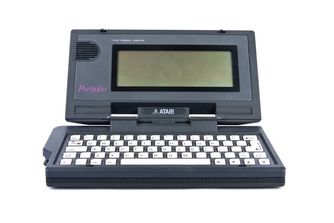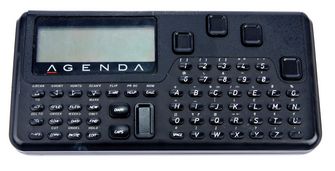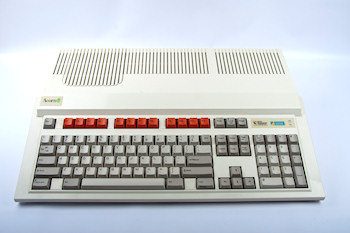
Hosted by the University of Plymouth

Hosted by the University of Plymouth

The Portfolio distinguishes itself as the first PC-compatible palmtop computer, with Atari having licensed the technology from a Guildford-based company called DIP. Powered by an 80C88 processor running at 4.9152MHz, the Portfolio had 128K of RAM and 256K ROM. The latter held the operating sys... (read more)Atari, 1989

One of the first examples of the type of device that would later become known as a PDA, the AgendA was equipped with 32K RAM, a 4-line LCD display, a series of built-in applications (wordprocessor, database, calculator, to-do list, organiser, and alarm), and programming language called ABC (a Pas... (read more)Microwriter Ltd, 1989
Designed by the same staff responsible for Nintendo's successful Game & Watch series, the Game Boy was a defining product for handheld gaming. While technically inferior to some of its competitors, with faster processors and/or colour screens, the Game Boy triumphed in the market thanks to two es... (read more)Nintendo, 1989

The last machine to bear the 'BBC Microcomputer' tag, the A3000 had 1MB of RAM and was powered by Acorn's own ARM2 processor running at 8MHz. The operating system was also Acorn's creation, RISC OS 2 (with the previous version having gone by the name of Arthur in the original Archimedes range). T... (read more)Acorn, 1989
Eastman Professional Video Cassette
Made by Kodak
30min Broadcast Quality
Label shows the tape held a recording of Plymouth Argyle vs Chelsea, Exeter vs Burnley and QPR vs Arsenal for transmission on Sunday 19th February 1989
Source unknown (read more)Kodak, 1989